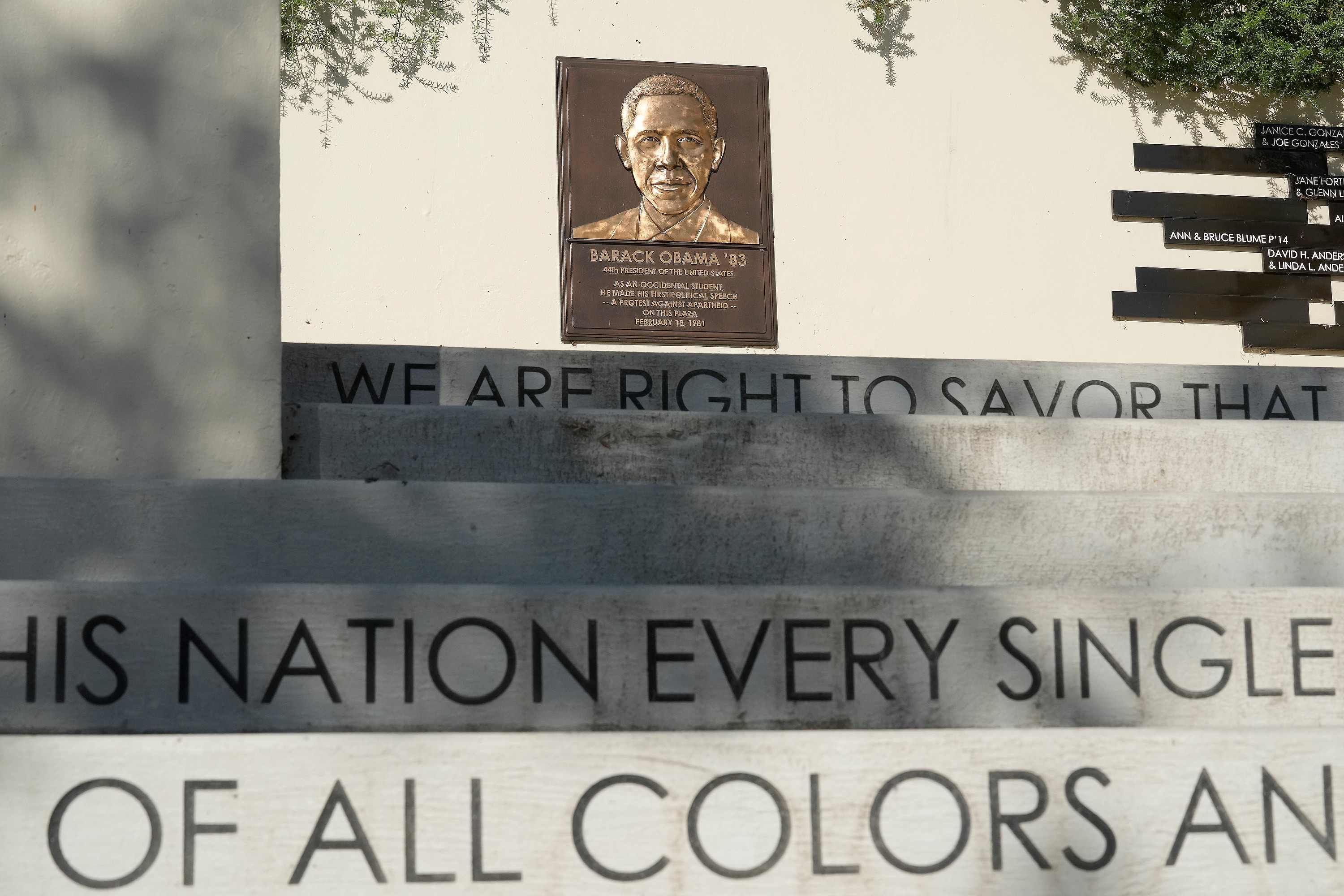WASHINGTON (AP) — A California college where President Barack Obama started his undergraduate studies will no longer give special treatment to the children of alumni.
Occidental College, a private liberal arts school in Los Angeles, is the latest school to end legacy admissions in the wake of a Supreme Court decision removing race from college admissions decisions.
A campus letter from the school’s president said an applicant’s family ties to Occidental alumni “could be considered” in the past but had only “minimal impact” on decisions.

“Still, to ensure we are removing any potential barriers to access and opportunity, Occidental will no longer ask applicants about alumni relationships as part of the application,” President Harry J. Elam Jr. said in a campus message on Wednesday. He cited the Supreme Court’s decision.
The school of about 2,000 students is known for being the campus where Obama began his college career in 1979. Obama spent two years at Occidental before transferring to Columbia University. Obama gave his first political speech at the college in 1981, urging its leaders to divest from South Africa.
An Occidental spokesman said Obama was not a legacy student and his parents did not attend the school.
Colleges across the nation have faced mounting pressure to end legacy admissions following the Supreme Court’s decision. Seen as an extra perk for the white and wealthy, opponents say it’s no longer defensible without a counterbalance in affirmative action.
Occidental announced the change a week after Wesleyan University in Connecticut ended legacy admissions. An applicant’s family connection to Wesleyan graduate “indicates little about that applicant’s ability to succeed at the university,” the school’s president wrote.
The U.S. Education Department is now investigating Harvard’s use of the practice after a civil rights group filed a complaint alleging that legacy admissions are discriminatory and given an unfair boost to white students. The complaint from Lawyers for Civil Rights argues that students with legacy ties are up to seven times more likely to be admitted to Harvard, can make up nearly a third of a class and that about 70% are white.
Opponents have redoubled their efforts after the end of affirmative action. The NAACP has asked more than 1,500 colleges to end legacy admissions this month, and the group Ed Mobilizer revived a campaign urging alumni of 30 prestigious colleges to withhold donations until their schools end the practice.
Democrats in Congress reintroduced legislation Wednesday that would cut federal money from colleges that favor students based on their ties to alumni or donors. State legislators in Connecticut, Massachusetts and New York have proposed similar bills after Colorado banned the practice at public universities in 2021.
Some colleges defend the practice, saying it builds an alumni community and encourages donations. It’s unclear how many schools use the practice, but it’s most common at the nation’s wealthiest and most selective colleges.
Some colleges abandoned the policy long before the Supreme Court opinion, including Amherst College and Johns Hopkins University. Some other prestigious schools say they have never used it, including the Massachusetts Institute of Technology.
Occidental’s shift was announced among other efforts to promote campus diversity. The school will also expand outreach to schools with higher concentrations of low-income students and will work to increase the number of students transferring from community colleges, the president said in his letter.
TheGrio is FREE on your TV via Apple TV, Amazon Fire, Roku, and Android TV. Please download theGrio mobile apps today!

